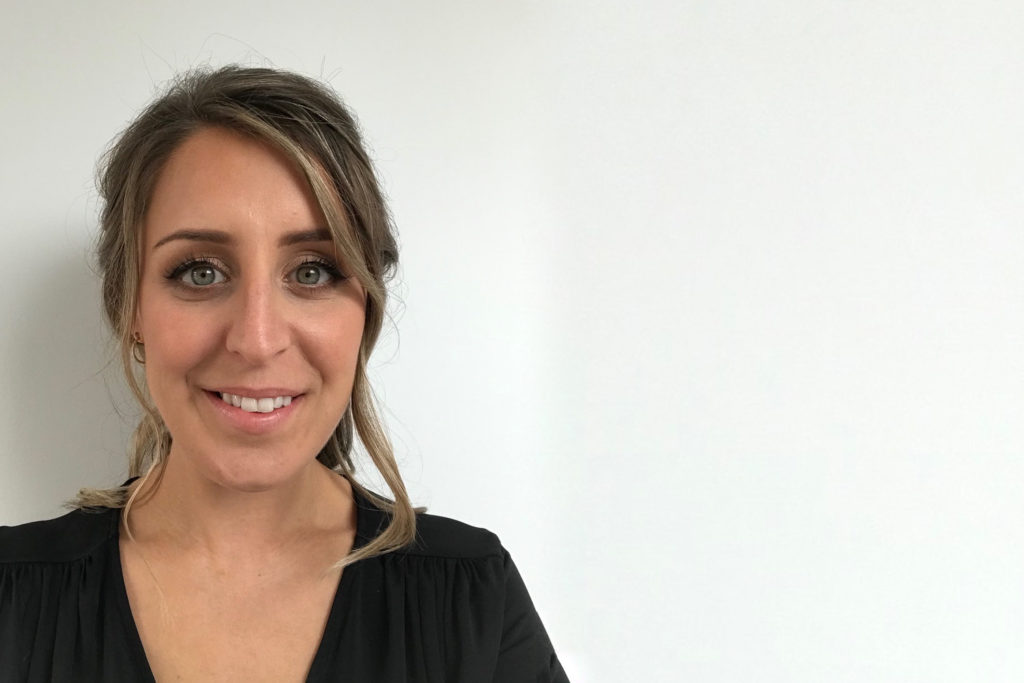Counsellors are often the first point of contact when people seek help for their mental health, though there’s still much confusion and stigma attached. To clear up some of those common questions and misconceptions, Compare Retreats’ Chief Content Officer Rebecca Cairns spoke with Clinical Psychologist Dr Hannah Sugarman, a counsellor with Central Minds and a Clinical Advisor for non-profit Mind HK, on when to seek help for your mental health and how cognitive behavioural therapy can make a big impact

When should people see a counsellor or a psychologist? The definition we usually give is when your mental health is interfering with your ability to do what you want to do or what you need to do. For example, with anxiety and depression, there’s a lot of quite common symptoms like loss of motivation and pleasure, struggling to sleep or being really restless or irritable, or worrying a lot. Some people might find that some of those things are quite normal for them and it’s not really interfering with their lives. But, if you’re feeling that way, it’s prolonged, nothing that you would usually do to make yourself feel better is working, and it’s getting in the way of your day-to-day life, that’s when I would suggest considering a counselling session.
See also: Winter Blues: What You Need To Know About Seasonal Affective Disorder (SAD)
How long is a ‘prolonged’ period of time? If it’s been two weeks, almost every day, and it’s interfering with your life, then we’d say its time to pay closer attention—it doesn’t necessarily mean you have a diagnosable mental health problem. It’s also important to take the context into consideration as well: if you’ve just had a bereavement, then it’s appropriate to feel like that. But particularly if there’s no identifiable, external trigger to explain why you’re feeling low or anxious, then that would definitely be a time to just check in with yourself and consider seeing someone.
“If we have gained weight, or have a new health symptom we’re worried about, we usually address it quite quickly, but we don’t do that with our mental health. It’s giving mental health the same equivalence as physical health.”
Dr. Hannah Sugarman
What kind of therapies do you offer in counselling? My core training is in cognitive behavioural therapy, also known as CBT. It’s usually a short-term therapy, helping people become more aware of their thoughts and feelings, and the impact that these have on their behaviour. My practice involves a lot of mindfulness, and because of the way CBT has evolved over the years, there are lots of complementary therapies that can be used alongside it.
See also: 5 Luxury Anti-Stress Retreats To Deal With Your Burnout
How long does it take to see results from counselling sessions? It really depends on the individual. CBT is usually a short-term therapy, usually a maximum of 20 sessions—but someone who has a mental health problem that’s emerged recently, it’s not as severe or they’re very motivated to work on it, then they may see results much quicker. If someone’s problem is more longstanding, or if there are factors that make it difficult for them to engage with therapy, relationship issues or financial worries, all of these can mean it takes longer to resolve the problem.

Are there some therapies that you find to be more effective than others? It’s really about the best fit for the person, and there are lots of different ways of working in therapy. In terms of the effectiveness of a therapy, it’s not just about the type of therapy you’re doing, but also the relationship between the therapist and client, how motivated they are, how ready they are to engage with the therapy—all of these things affect its effectiveness.
See also: 10 Holistic Health Entrepreneurs In Hong Kong Offering Alternative Wellness For Mind, Body & Soul
In your experience, which daily or weekly wellness habits do you find are most effective for maintaining good mental health? This is so unique to each individual, but the main goal would be to find whatever your self-care necessities are and make sure you’re doing them. For me, it’s exercise, getting enough sleep, trying not to work weekends, trying to go for a walk in the middle of the day so I’m not sitting in one chair all day. It’s going to be different for everyone, but it’s about making sure that you still do it, even when you’re really busy or getting stressed.
“There’s a lot of cultural factors that make it difficult for people to be open. We try to encourage people to make it part of the conversation so that it doesn’t have to remain taboo.”
Dr Hannah Sugarman
Are there any groups that are particularly at risk?Youth are vulnerable, as most mental health problems develop before the age of 24, so if they’re not identified and addressed early, that it can have a huge impact on someone’s life. Quite unique to Hong Kong, we have a particular problem with poor mental health in elderly people: they are very high risk, and we have the highest rates of elderly depression and suicide in the world.
What are some of the factors that put these groups at risk? One of the factor here in terms of who is at risk is that the public sector mental health services will only see you very quickly if you’re in crisis—if you’re not, then you could be waiting up to three years to see someone. So people who aren’t in crisis, but can’t afford private mental health treatment are particularly at risk and are going to fall through the gaps.
See also: How Traditional Medicine Supports Every Day Mental Wellness
What are the most important elements in combating mental health problems as a society? Prevention, early recognition and treatment. There are things that we can do individually, like trying to educate ourselves more on mental health so we know what to look out for in ourselves and other people, knowing the signs of common mental health problems are, and understanding how and where to get help is a really good first step. Mind HK offers really good mental health training, and there’s plenty of public sessions where people can learn more.

What can we do to reduce the stigma surrounding mental health? One thing that we’ve really encourage is talking about it, even though those conversations can be uncomfortable and awkward. There’s a lot of cultural factors that make it difficult for people to be open. We try to encourage people to make it part of the conversation so that it doesn’t have to remain taboo.
Another thing is prioritising it the way we do with the physical health: if we have gained weight, or have a new health symptom we’re worried about, we usually address it quite quickly, but we don’t do that with our mental health. It’s giving mental health the same equivalence as physical health.”
The final main factor in reducing stigma is education, and helping clear up misconceptions—for example, that mental health problems are curable or that people with mental health problems are all violent. We need to educate ourselves, and learn about the truth, which is actually a lot less alarming than a lot of the media portrayals of mental health, which Mind HK offer.
See also: 7 Inspiring Self-Help Books To Shake Up Your Lifestyle
For anyone supporting friends or family with mental health issues, what advice would you give them? If you find yourself in a position of support, it can be really hard to do, so make sure that you are keeping up your own self-care routines. It can be worth learning more—Mind HK has an introductory training which touches on it, and an in-depth training called Mental Health First Aid, which is all about recognising mental health problems, having those conversations with people, and pointing them to the resources to get help.
Dr. Hannah Sugarman is a clinical psychologist (BSc. Psychology, MSc. Cognitive Neuroscience) and HCPC-registered Chartered Clinical Psychologist. She works with Central Minds as a Psychologist and Counsellor, is a Clinical Advisor for Mind HK, and a Mental Health First Aid Instructor.



